Order of Military Merit of Charles Frederick, Grand Cross Breast Star
SKU: 01.BAD.0102.103.01
Estimated market value:
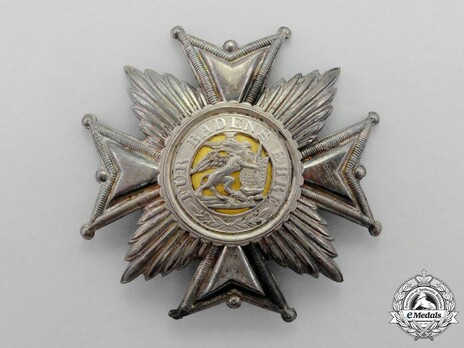
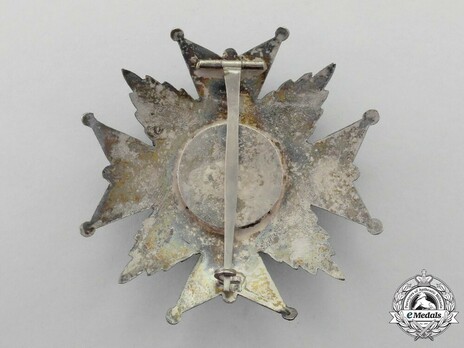
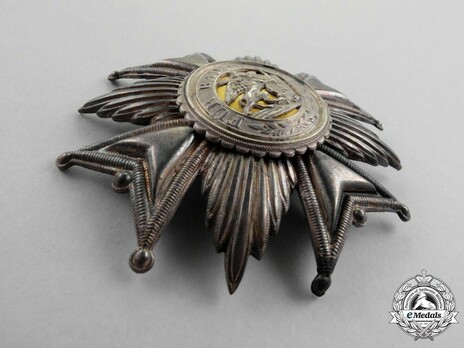
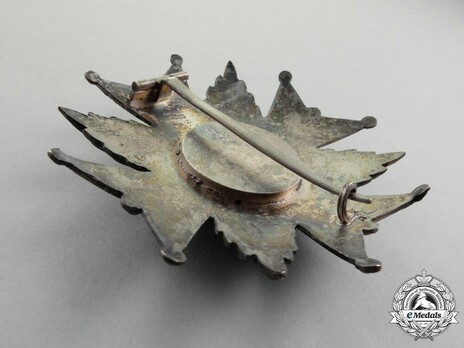
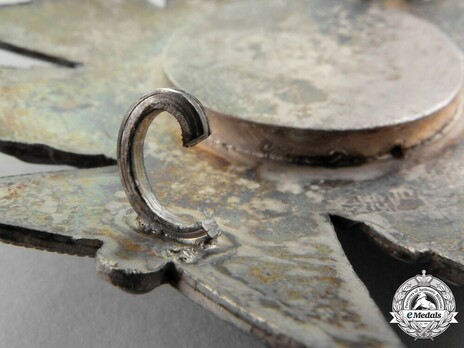
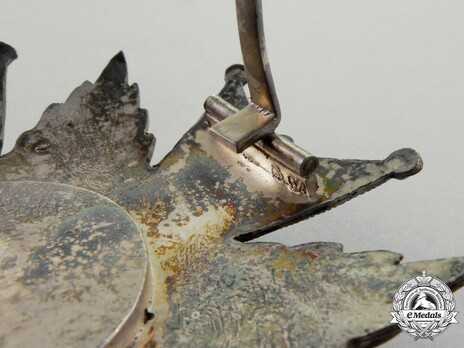
Estimated market value:
Attributes
Physical Description
A Maltese cross, the points of the arms bear ball finials and there are rays in the quadrants between the arms. The obverse centre bears a circular medallion with a crowned griffin holding a shield and sword, on a yellow background. Encompassed by a border with the inscription “FÜR BADENS EHRE” (for the honour of Baden) with an open ended laurel wreath.
History
The Order of Military Merit of Charles Frederick was instituted by Grand Duke Charles Frederick on April 4, 1807. The Grand Duke had previously spoken of the order, but could not institute any statutes as the army of Baden had not initiated a battle with an enemy until 1807. It was originally restricted to officers in recognition of distinguished military merit or an outstanding act of courage.
It originally featured three grades: Grand Cross (with Breast Star), Commander and Knight. In 1807, the Military Merit Medals were added to the Order with gold and silver grades, and the medals could be awarded to Non-Commissioned Officers and Enlisted Men. The medals were engraved with the name of the recipient. The Military Merit Medals were the highest military decoration awarded for bravery that could be conferred upon Non-Commissioned Officers and Enlisted Men.
The first award ceremony of the Order of Military Merit of Charles Frederick took place on April 22, 1807 in the Danzig camp.
The Commander grade was divided into two separate grades in 1840, I Class Commander and II Class Commander.
The crosses of the Order were originally composed of gold, but following 1916, the crosses were predominantly composed of silver gilt.
The order cross and medals were accompanied by an allowance. The general treasury allotted 2,200 guilders to pay the allowances. The two oldest Grand Cross recipients received 400 guilders, the three oldest Commander Cross recipients received 200 guilders and the eight oldest Knights received 100 guilders annually. From 1820, the pension of the Grand Crosses ceased to exist. Instead, the eight oldest Commander Cross recipients received 200 guilders and the 24 oldest Knights received 100 guilders annually.
Grand Duke Charles Frederick took over the dignity of Grand Master. All male members of the ducal house were born holders of the order, but without the pension. This did not last, and by 1870 was terminated.
The number of recipients of the order was not limited and individuals of every military branch, regardless of religion, rank, birth or other circumstances could receive the award. Generals could only receive the Grand Cross and Commanders only received the Grand Cross Breast Star when they advanced to the position of general. An exception to that statute was 25 years of loyal service and the recommendation of the highest person of a sovereign. However, that provision was withdrawn in 1831.
The members of the order could add the insignia to their coat of arms. Upon the recipient’s death, the award had to be returned. If a recipient retired from active service they were permitted to wear the award with civilian clothes.
In 1814, holders of the French Legion of Honour had to exchange them for the Order of Military Merit of Charles Frederick, but that provision was reversed in 1818 and both awards could be worn next to each other.
The Military Order of Merit of Charles Frederick was abolished on November 8, 1918. The campaigns in Spain (1808), Austria (1809), Russia (1812), Silesia and Saxony (1813), and France (1814-15) caused a rise in the number of medal recipients.
Breast Stars may be marked: P. WILLET/IN/CARLSRUHE, KRETLY/PALAIS-ROYAL/PARIS, THEODORE/OELENHEINZ/IN/KARLSRUHE J. PETRY. There is a great deal of variation in the appearance and size of the Breast Star. The Breast Star was awarded with the Grand Cross and the I Class Commander.

Versions
$7,000 USD
Silver/Gold
Obv: FÜR BADENS EHRE
76mm
Beginning sometime between 1830 and 1850, the Grand Cross Breast Star was made of metal.
$7,000 USD
Silver/Gold/Enamelled
Obv: FÜR BADENS EHRE
75mm
C. F. Zimmermann, Pforzheim
This version was awarded during WWI.
$4,000 USD
Embroidery
Obv: FÜR BADENS EHRE
Earliest versions of the Breast Star were composed of embroidery.


Comments
Sign in to comment and reply.


Scroll Top